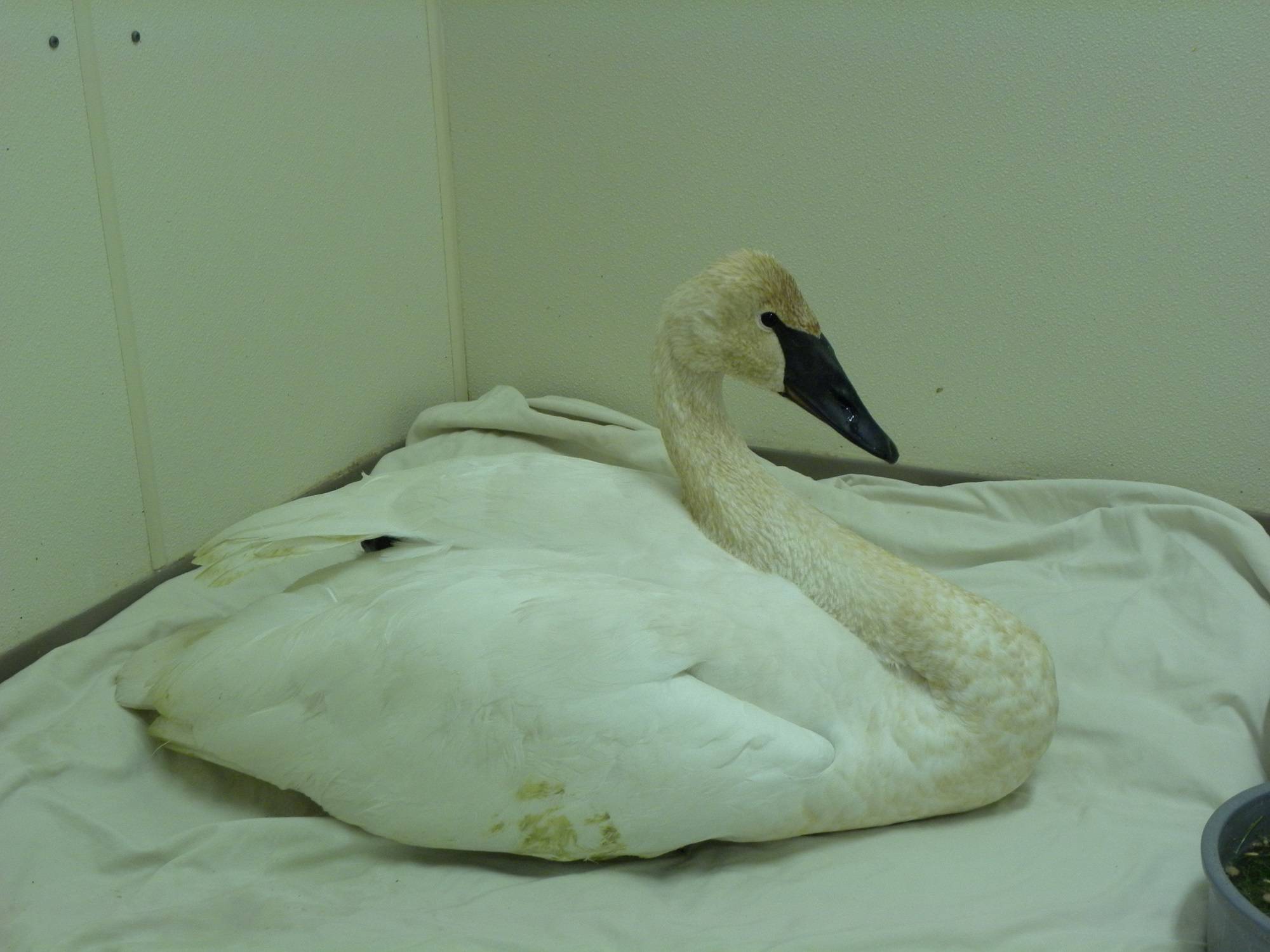Submitted by Wolf Hollow Wildlife Rehabilitation Center
After receiving a call about a trumpeter swan next to San Juan Valley Road, Wolf Hollow Wildlife Rehabilitation Center crew went out to save her. The swan was severely emaciated and so weak, she could barely stand. Treatment started immediately, but the staff couldn’t find any wounds or injuries. X-Rays showed no broken bones.
What was wrong with the swan?
This was a mystery until blood test results returned, showing she had extremely high levels of lead in her system. Lead poisoning affects many parts of the body including the kidneys, heart and nervous system, which explains why the swan was so thin, weak and uncoordinated.
At lower levels, it is possible to treat lead poisoning, but this bird had almost twice the treatable level of lead, and her blood work showed irreparable damage to her organs. Sadly, the only humane option was to euthanize this beautiful big bird so she didn’t have to suffer anymore.
How does a swan end up with lead poisoning? Usually from ingesting lead shot. When they’re feeding on fields, ponds or lakes, swans can pick up old lead shot, which is broken down in their digestive systems, releasing the lead into their bodies. Hundreds of swans die from this problem every year.
Did the swan pick up the lead here on the islands? Perhaps, but when trumpeter swans fly south in the fall from their breeding grounds in Alaska, they may stop at several places to rest and feed along the way. This swan could have picked up the lead somewhere in British Columbia, or in Whatcom or Skagit Counties before arriving on the San Juans.
In Washington, lead shot has been banned for waterfowl hunting since 1989, but used for decades before. Huge quantities remain in the mud at the bottom of lakes where swans, with their long necks, can reach it when they’re feeding. It is also still legal to use lead shot for hunting upland game birds, so spent shots can be found in fields where swans and geese feed in the winter.
Wolf Hollow staff is sad to lose the beautiful swan, but glad that she didn’t die in the wild: eagles and other scavengers could have fed on her, then suffered from secondary lead poisoning.
If you see a wild animal that looks like it may need help, call Wolf Hollow at 360-378-5000.



